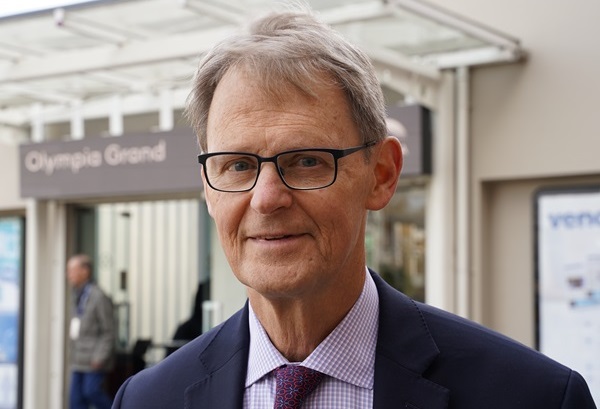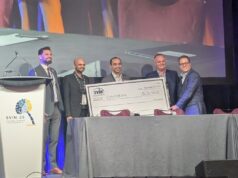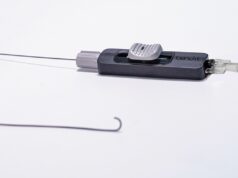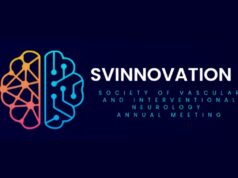
Leo Nelson (Nick) Hopkins, a world-renowned surgeon, researcher and innovator who played a pioneering role in modern neurosurgery’s shift from open- to endovascular-first techniques, has died aged 81. Hopkins passed away on 5 October at the Gates Vascular Institute in Buffalo, USA—a centre that he created and which “embodied his vision of all vascular specialists working together collaboratively”.
Hopkins was professor and chairman of neurosurgery, and professor of radiology, at the University at Buffalo’s (UB) Jacobs School of Medicine and Biomedical Sciences (Buffalo, USA) from 1989–2013. In 2013, he was awarded State University of New York (SUNY) distinguished professorship in neurosurgery and radiology—the SUNY system’s highest faculty rank.
In addition to founding Kaleida Health’s Gates Vascular Institute and serving as its chairman of the board for many years, Hopkins co-founded Toshiba’s Canon Stroke and Vascular Research Center in 1991, instilling a multidisciplinary approach to exploring and improving stroke therapies, and established the Jacobs Institute (JI) in 2008 as a hub for innovation in vascular medicine.
Hopkins is credited with being among the first neurosurgeons to truly embrace minimally invasive techniques as a means for treating stroke and other neurovascular diseases. In a tribute posted online, JI chief executive officer Adnan Siddiqui (Buffalo, USA) has described Hopkins as “a unique, unrelenting and powerful force of nature” whose efforts “moved endovascular technology to the forefront of neurosurgery and neurointervention”.
Hopkins led the UB Department of Neurosurgery as chairman for almost 25 years, transforming it into one of the foremost neurosurgical centres in the world and ultimately training many members of the current generation of neurointerventional thought leaders—with his mentees being fondly referred to as the ‘Buffalo Mafia’.
“Today, the neurosurgical community mourns the loss of a giant who gifted the world the specialty of neuroendovascular surgery,” said Elad Levy, the L Nelson Hopkins endowed chair of neurosurgery at UB (Buffalo, USA). “His legacy of disciples across the world continues to advance the field he started.”
“By virtue of his unique personality, strong desire for innovation, and going against the grain, he developed partnerships with budding entrepreneurs in the MedTech space, building lasting relationships and founding multiple successful companies which have helped millions of people around the world,” Siddiqui added.
Hopkins—a proud Buffalo native—completed his undergraduate studies at Rutgers University (New Brunswick, USA) in 1965 before earning a cum-laude Doctor of Medicine (MD) degree from Albany Medical College (Albany, USA) in 1969. He completed a surgical internship at Case Western Reserve University (Cleveland, USA) in 1970, and then neurology and neurosurgical residencies at UB in 1971 and 1975, respectively, upon returning to Buffalo.
Hopkins was an active member of the neurosurgical community in the USA and globally, serving on the board of directors of the American Association of Neurological Surgeons (AANS) and the executive committee of the Stroke Council of the American Heart Association (AHA). He has served as scientific and annual meeting chair for both the AANS and the Congress of Neurological Surgeons (CNS). Hopkins was also chair of the AANS/CNS Joint Section on Cerebrovascular Surgery from 1994–1996, and president of the American Academy of Neurological Surgery in 2006.
In addition, as a researcher, Hopkins was the principal investigator for a number of clinical trials evaluating minimally invasive treatments for neurovascular diseases and authored more than 300 medical publications. One of the most recent and most prominent examples of his significant contributions to endovascular neurosurgery was the role he played in the international SWIFT PRIME trial, which was published in the New England Journal of Medicine in 2015, and helped to establish mechanical thrombectomy as a safe and effective procedure for ischaemic stroke. Upon the release of these findings, Hopkins accurately predicted that “we are at the dawn of a new era in stroke”.
Back in 2018, Hopkins discussed the future of stroke thrombectomy with NeuroNews in a video interview that can be viewed below.
Hopkins’ achievements and legacy were recognised via numerous awards throughout his career. In 2019, he received the 2019 Chancellor Charles P Norton Medal, which is seen as UB’s highest honour. In 2021, he was inducted into the Buffalo Business First Business Leadership Hall of Fame. Hopkins also received the Kaleida Health Lifetime Spirit Award on two separate occasions and, in 2023, his “intense dedication to multidisciplinary collaboration and mentorship in medicine” was recognised via the Cardiovascular Research Foundation’s Pulse-Setter Champion Award. Last year, he was the honoured guest of the CNS annual meeting, where the ‘Hopkins Symposium’ featured a full programme celebrating his career.
The news of Hopkins’ death was met online with hundreds of tributes and messages of condolence from across the globe.
“Folks like me practise our craft in the shade of the tree that he planted and nurtured for decades,” said Charles Matouk (New Haven, USA). “We will visit him often in the pantheon of neurosurgical heroes.”
“[This is] a sad day for our field—a true innovator, visionary and a great human being is gone,” wrote Pascal Jabbour (Philadelphia, USA). “He will remain alive, and his legacy will continue through his disciples and the many lives he saved.”
Hopkins was described by Adam Arthur (Memphis, USA) as “a truly great man, and one of the most impactful leaders and innovators in the entire history of medicine”, with Hal Rice (Southport, Australia) calling him “a true pioneer and gracious legend” and Alejandro Spiotta (Charleston, USA) stating simply that “there will never be another”.
Current AANS president Jacques Morcos (Houston, USA) also paid tribute, commenting that Hopkins “dared to chase what others could not even see”, and that “his example transcends those he taught, for his appeal is universal”.
Hopkins is survived by his wife of 59 years, Bonnie; his sister, Jane; his three children, Bob, Margie and Betsy; and his eight grandchildren.









